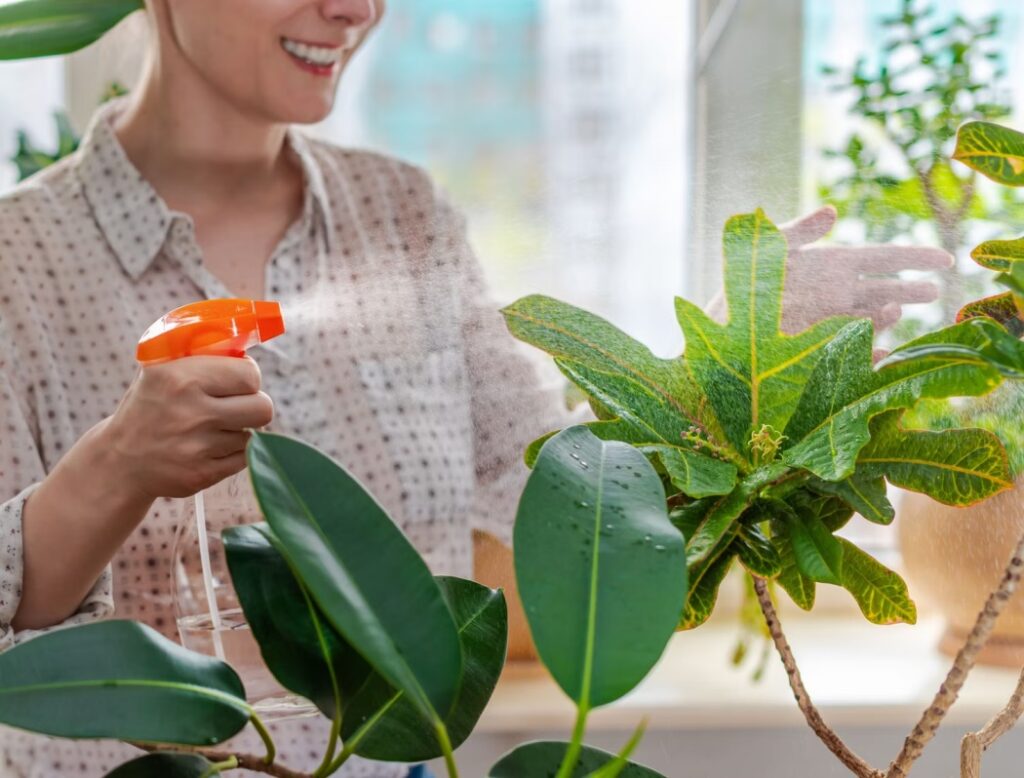
Maintaining a vibrant garden requires constant love and utmost attention. While tending your precious tree, you have definitely come across neem oil. For those who haven’t let me enlighten you- neem oil is an insecticide that has arisen among gardeners as a popular choice due to its eco-friendly properties and countless benefits.
But even though it is the safest pesticide and fungicide option out there, some plants don’t appreciate the product. For instance, if you apply neem oil on plants like caraway, basil, and cilantro it will harm rather than benefit your tree.
In this article, I will explain which plants don’t like neem oil. What are the reasons behind their sensitivity? What are the effects? and what are other alternatives?
Understanding which plants to protect and which to treat with alternative methods you will secure the health and prosperity of your precious greenery.
Table of Contents
What’s the use of neem oil on plants?
The seeds of the neem tree, native to India, Burma, and Sri Lanka, create neem oil. In its native area, people have been utilizing the neem tree’s oil for hundreds of years to fight insects on plants.
This oil, working as a botanical insecticide, effectively manages insect crises and can also aid with specific fungal conditions such as powdery mildew.
Pests such as aphids, mites, beetle larvae, caterpillars, lace bugs, mealy bugs, and whiteflies can all be killed with the help of this eco-friendly insecticide.
Proper use of neem oil is essential, just like any pesticide. Neem oil comes as a virgin oil or concentrate and either alternative requires suitable dilution with water before application.
With pure neem oil, you can add emulsifiers as well, to boost the substances. The inaccurate application can harm useful insects.
Why are some plants sensitive to neem oil?
Neem oil has a variety of active properties in them, most notably azadirachtin, which is mainly responsible for its pest and fungal-killing effects. While these properties are normally okay for numerous plant species and useful insects, they can have different consequences on specific sensitive plants. The sensitivity of these plants may be attributed to the existence of specific enzymes that may interact differently with neem oil’s active components.
Some plants have soft or delicate leaf surfaces, causing them to be more inclined to be injured when neem oil is used (the majority of my herb collection is not fond of neem oil, especially my basil), particularly if it is not correctly diluted with water.
What are the effects of neem oil on neem oil-sensitive plants?
The two most common effects of neem oil bad effects are- burning the plant and killing the plant.
Can a Plant burn due to neem oil?
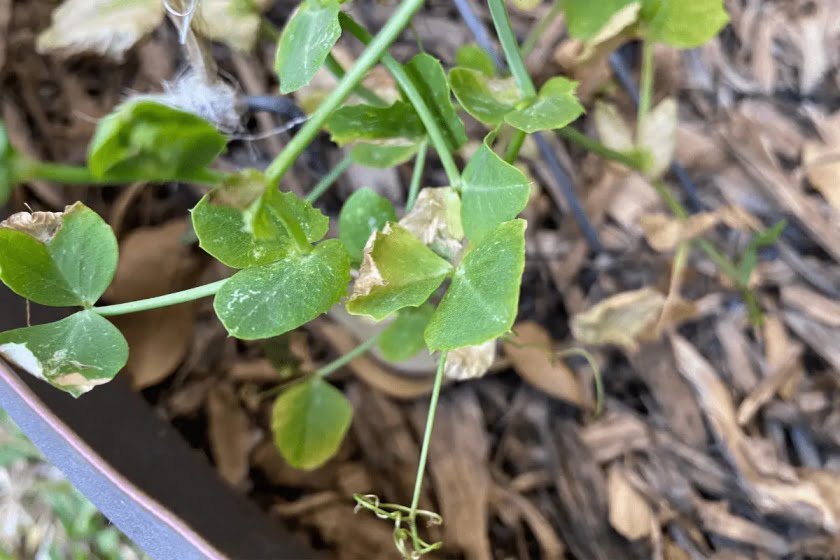
Burnt pea leaves due to neem oil
Neem oil can scorch plants if used during midday or daytime hours, particularly during the hot summer months.
You will notice many people will recommend morning and afternoon applications, but I will strongly advise you to avoid morning time applications. My basil plant burnt even though I applied neem oil early in the morning. You see, neem oil needs enough time to dry out before the sun becomes prominent, and morning time application will not give them enough time.
For best results, I wait till the sun goes down, but the light is clear enough to detect the tree. This way the oil application will have the whole night and morning to act before the sun becomes prominent in the daytime.
Can a Plant fail due to neem oil?
Neem oil is not powerful enough to kill a mature plant but it can harshly affect seedlings. If neem-sensitive seedlings get exposed to sunlight after the application of the oil, first their growth will be stunted, and then might even kill the plant.
Seedlings affected by insects can be removed manually by hand as they are small so don’t go for neem oil just after pest detection.
What are the Common plants that are sensitive to neem oil?
Here are some of the most common neem oil-sensitive plants;
Basil:
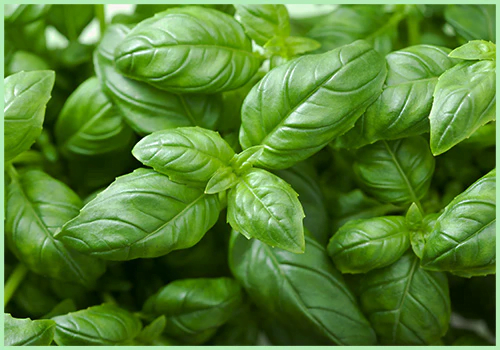
Basil, is a popular household herb plant, cultivated and consumed in the whole world. They are easy to grow but extremely delicate.
Given basil’s fragile personality, its leaves are inclined to damage. It’s crucial to move with carefulness when treating typical pests such as aphids, and spider mites. Neem oil can be easily responsible for burns on tender basil leaves.
Orchids:
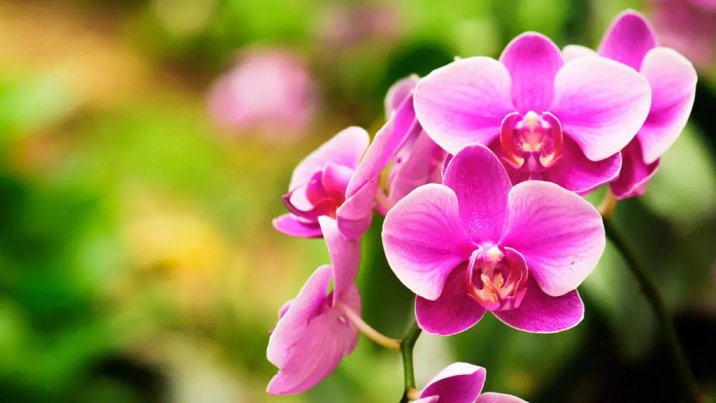
Orchids are favorably cultivated for their intricate and delicate blossoms. Neem oil application can give unattractive remains to the petals, impacting their aesthetics.
Dill:
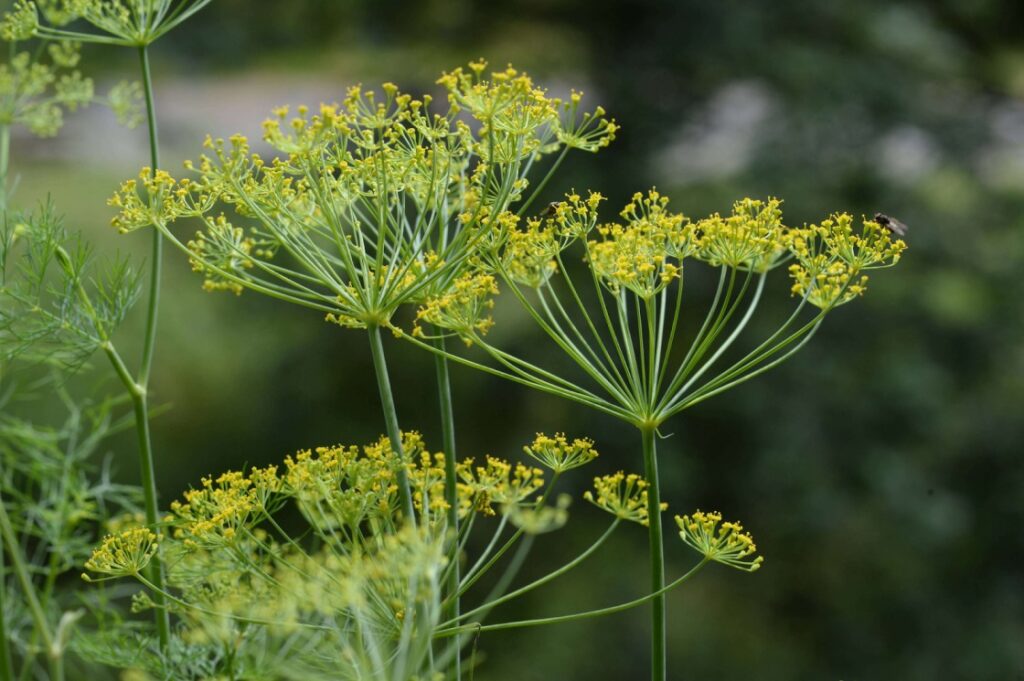
Dill, another very favored herb in the culinary world, is known for its fragrant and edible herbage and blossoms that even lure pollinators.
The unique leaves of dill need unique maintenance when it comes to pest control. If you see some familiar pests such as aphids, or armyworms, do not use neem oil on this plant as it can create burn and ruin the tender dill leaves.
Ferns:
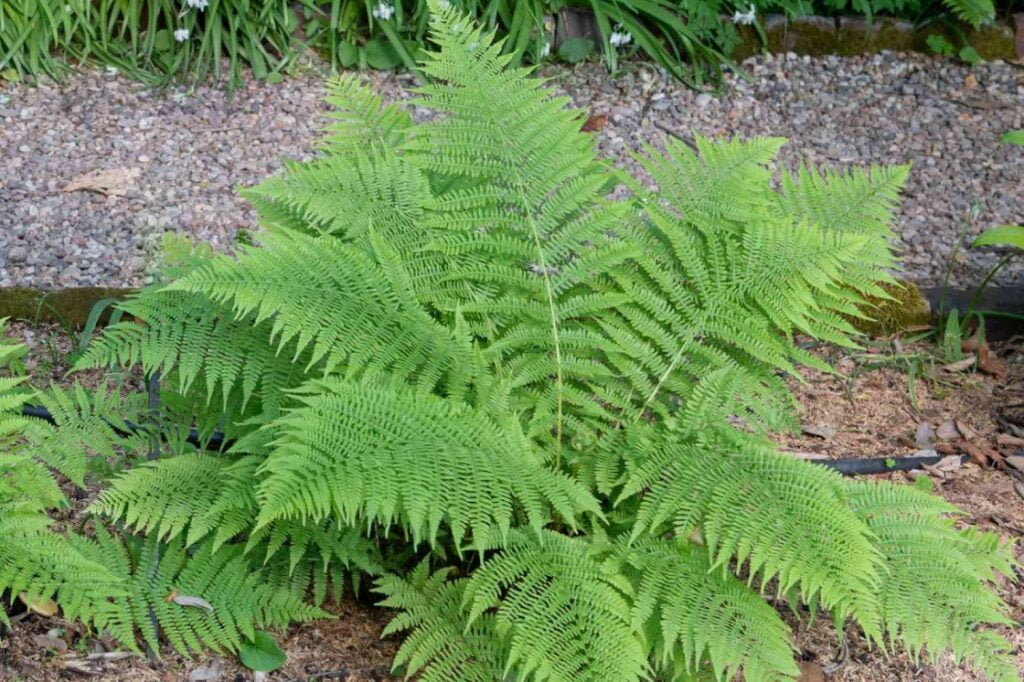
Ferns are liable and have delicate, thin leaves. Neem oil can clog the small pores of these leaves, stopping them from proper breathing and generating potential harm.
African pansies:
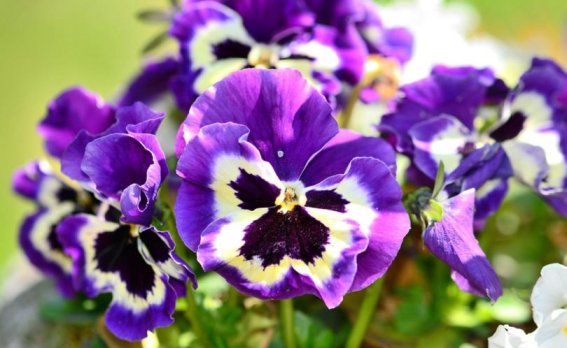
African pansies should be managed with care when using neem oil. The oil can cling to the delicate hairs of the plant and stop the plant from breathing, possibly damaging it.
Most popular neem tolerant and neem sensitive plants:
I have made a list of other common plants that you can spray with neem oil and others that you might like to refrain from spraying with neem.
| Plant | Neem oil tolerance |
| Lemongrass | Neem tolerant |
| Mint | Neem tolerant |
| Pasley | Neem sensitive |
| pepper | Neem tolerant |
| Pothos | Neem tolerant |
| Daisies | Neem sensitive |
| Oregano | Neem sensitive |
| Fennel | Neem tolerant |
| Zinnia | Neem tolerant |
| Bird’s-nest fern | Neem sensitive |
| Succulents | Tolerance level depends on the atmosphere |
| Thyme | Neem sensitive |
| Turnip | Neem tolerant |
| Rue | Neem sensitive |
| Peace lily | Neem tolerant |
| Lettuce | Neem sensitive |
| Panda plant | Neem sensitive |
| English ivy | Neem tolerant |
What’s the ideal alternative for these plants?
For plants liable to neem oil can make you worry about saving them from pests, but do not worry I have found some alternative methods that you can utilize, here are some options to consider:
Insecticidal soaps:
Available in pre-mixed or concentrated forms and only needing dilution, insecticidal soaps are the best alternative for pest control and can be easily brought from local nurseries or online.
Horticultural oils:
Horticultural and dormant oils can actually be most effective in smothering soft-bodied pests. Horticultural oils work best in summer and dormant oil in winter.
Integrated Pest Management (IPM):
This method is kind of hard but very organic. The benefit of integrated pest management methods such as companion planting, and the releasing of insects that are beneficial can help control pests naturally and decrease the necessity for chemical use. Not going to lie, the process is long term but once both trees are established you don’t have to worry about pests again.
What’s the ideal mixture for neem oil?
When you are purchasing neem oil try to look for ”natural” or “virgin” neem oil, it’s better when it is 100% pure and cold-pressed.
It should be cold-pressed because heat eliminates azadirachtin, meaning that heat-derived oils lack a sufficient quantity of this active property in them.
Another benefit of purchasing purely natural neem oil is controlling contamination.
Processed neem oil may contain unnecessary chemicals. These may be dangerous when they come into touch with your plants.
Perfect proportion and dilution are important even for neem-tolerant plants. I have been using a mixture for years and that works like a charm.
So, to make neem oil spray at home, the components you require are;
- Neem oil
- Water
- Emulsifier
Don’t be shocked at the latter one, as oil and water don’t blend, you will require a method around this when preparing the spray. Gentle liquid soap can function as an emulsifier to ensure both the water and the neem oil mix.
Step-by-Step Method of Creating Your Neem Oil Spray;
To produce 1 liter of a gentle 0.5% basic neem oil spray, you will require:
- 5 ml of neem oil
- 1 liter of lukewarm water
- 1-3 ml of mild liquid soap or another gentle detergent
Step 1 – blend soap and water in a spray bottle and jerk well to ensure the soap is totally dissolved.
Step 2 – add in the neem oil and jerk again.
Also read:- 5 best indoor fertilizers for indoor garden.
Conclusion:
Neem oil surely does an amazing job as a botanical insecticide, delivering a secure solution for numerous issues, for pest infestations. But, it’s important to understand that not all plants handle the application of neem oil. Hope this article made it clear and now you know in which plant you can employ neem oil as a pest control measure for your garden.

